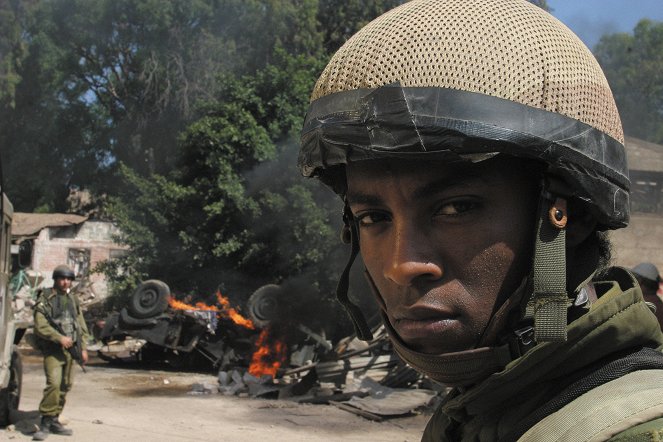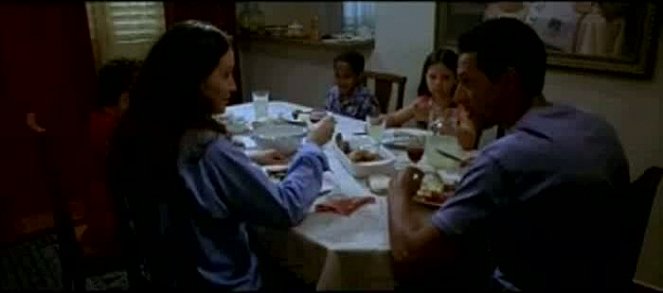Directed by:
Radu MihaileanuCinematography:
Rémy ChevrinComposer:
Armand AmarCast:
Yaël Abecassis, Roschdy Zem, Roni Hadar, Shimon Mimran, Pierre-Jean Chérer, Joy Rieger, Hervé Pauchon, Shmil Ben Ari, Patrick Descamps, Shlomo Vishinsky (more)Plots(1)
In 1980 the black Falashas in Ethiopia are recognised as genuine Jews. In turn they are secretly carried to Israel. The day before the transport the son of a Jewish mother dies. In his place and with his name (Schlomo) she takes a Christian 9-year-old boy. Upon arrival this second mother dies. Schlomo is adopted by a good family but remains depressed until he secretly sends a letter to his real mother. From the beginning he experiences large and small racist difficulties. In his teens he and Sarah fall in love. Her father is an extreme racist. Schlomo tries to gain "real Jewishness" by winning a competition in Bible interpretation. No change of Sarah's father's attitude. Disappointed he goes to the police and reports himself as not being a Jew. But the police officer just gives him a scolding. "The newspapers are full of that stuff, the Falashas are no Jews. Now they begin to believe it themselves." His adoptive parents send him to France to study medicine. When he afterwards marries Sarah she loses her family and her status as a "white Jew". But he dares not tell her the truth until she becomes pregnant. She leaves him, but only because he had not trusted that she would love him as much anyway. His adoptive mother reconciles them. Sarah's first line when she returns: "Unbelievable what three mothers would do for you." But she makes a condition for returning: Schlomo must meet his real mother again. As a doctor he takes a job in the Ethiopian fugitive camp where she is still alive. (Seville Pictures)
(more)Videos (1)
Reviews (1)
I still remember the arrival of Ethiopian Jews to Israel, and it must be said that it is material that is incredibly attractive for a film. Films with a message have it easier after all because a star is added to the topic. The issues of uprootedness, cultural and religious identity, and racial prejudice all have dramatic potential and when it comes to a story based on a real event, it counts double. How can a nine-year-old Christian boy answer the rabbi's question about who brought the Jews their faith? Unfortunately, Radu Mihăileanu's film does not take advantage of all these possibilities. The script is only average and predictable most of the time, including the final scene of the reunion after years. In many cases, it transparently counts on human emotions. It's not a bad movie, it just could have been even better. Besides the script, I also disliked the melodramatic music. On the other hand, the direction, camera work, and performances are the strong aspects of the film. Overall impression 75%.
()
Gallery (20)
Photo © Les Films du Losange


